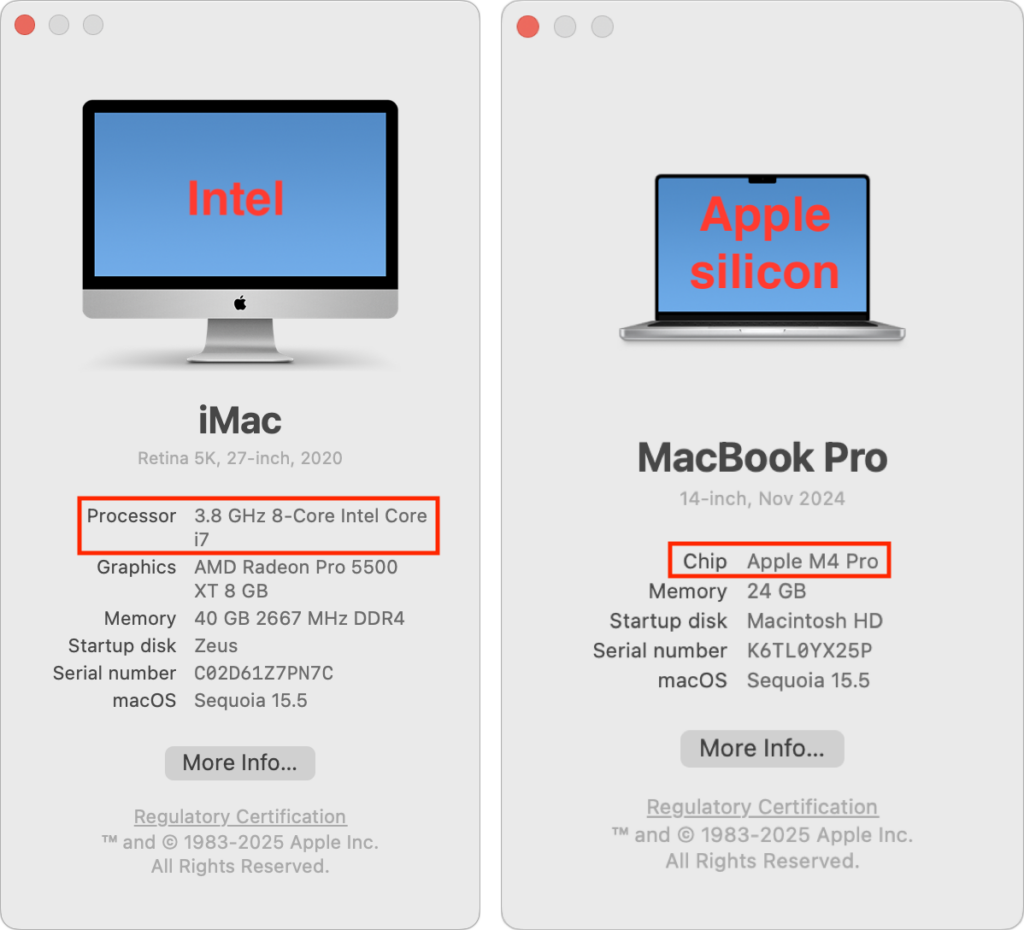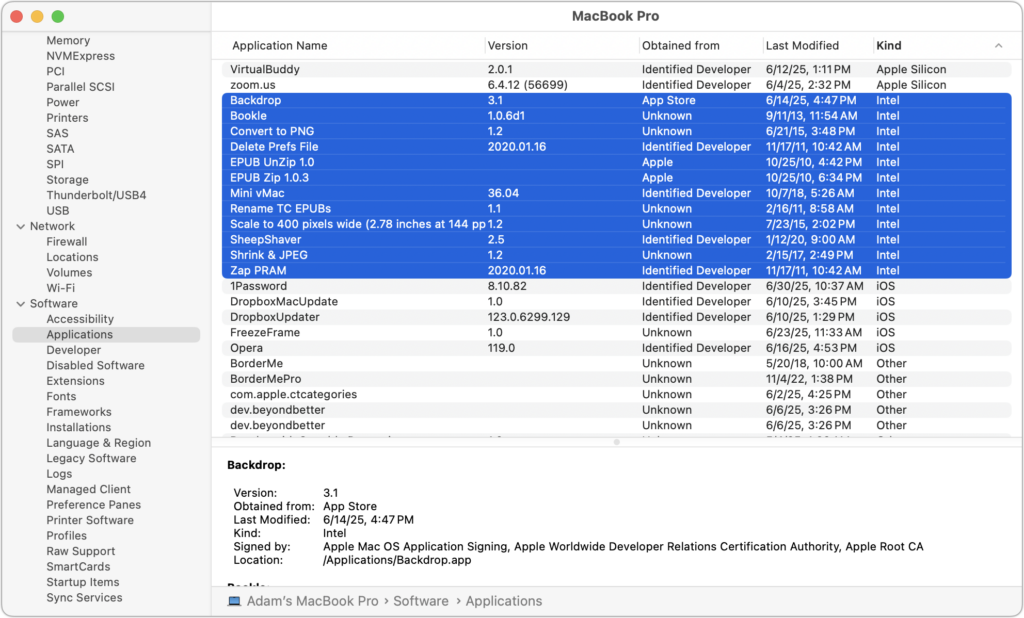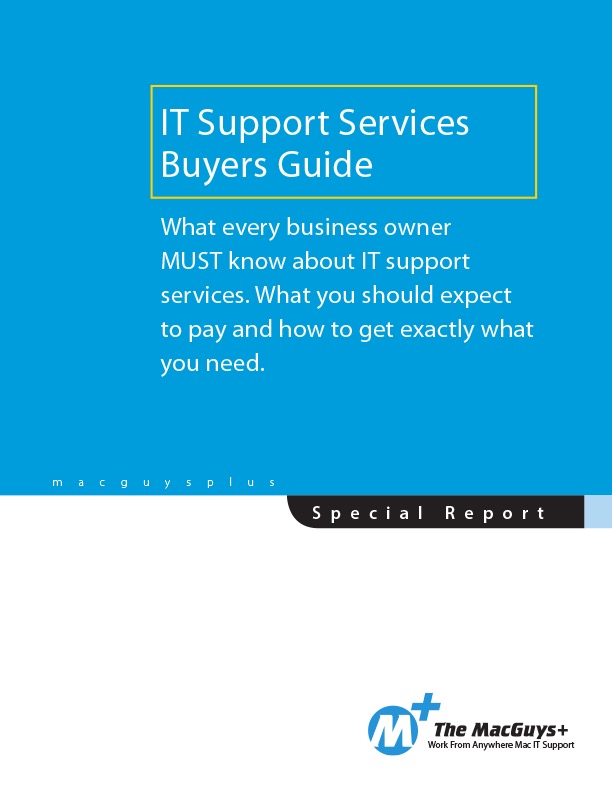
In 2020, Apple launched the M1 chip—its first Apple Silicon processor—and marked the beginning of the end for Intel-based Macs. Over the years, the Apple silicon lineup has continued to grow stronger, with today's M4 chips delivering unmatched speed and efficiency. While Apple initially promised years of support for Intel-based Macs, we now know precisely when that support will end.
macOS Support Timeline
At WWDC 2025, Apple confirmed that macOS 26 (Tahoe) will be the last macOS version to support Intel-based Macs. Only four models will be eligible:
- 16-inch MacBook Pro (2019)
- 13-inch MacBook Pro with four Thunderbolt ports (2020)
- 27-inch iMac (2020)
- Mac Pro (2019)
These models will continue to receive security updates for macOS 26 through 2028. Still, they won't be eligible for macOS 27, which will be Apple Silicon-only.
To check if your Mac uses Intel or Apple silicon, go to the Apple menu > About This Mac and look at the "Processor" or "Chip" field.

Rosetta 2 Support for Intel-based Apps
Apple's Rosetta 2 translation tool has allowed Intel-based apps to run seamlessly on Apple silicon Macs. This bridge is still available in macOS 26 and will remain in macOS 27, which is expected to be released in 2026. But Apple has made it clear: Rosetta's days are numbered. After macOS 27, only limited functionality will remain, primarily for older, unmaintained games.

To find Intel-only apps on your Mac:
- Open System Information (in Applications > Utilities)
- Click Applications in the sidebar
- Sort by the Kind column to find apps labeled "Intel"

What You Should Do Now
If you're holding on to an Intel Mac, here's the bottom line:
- Security support ends in 2028 for the last supported Intel Macs
- Rosetta support ends in 2029 for Intel-only apps
- The longer you wait, the more complex the upgrade path becomes
Sticking with outdated hardware or apps may seem convenient now, but it increases your risk of security issues, compatibility problems, and rising maintenance costs.
Upgrade Guidance
Whether you're running a business or using a Mac at home, waiting until support runs out is rarely a good strategy. Businesses typically refresh devices every 3–5 years to avoid lost productivity. Individuals can benefit from following that same cycle, especially with the leap in performance and efficiency Apple silicon offers.
If the apps you rely on haven't been updated for Apple silicon yet, they likely won't be. Now's the time to look for alternatives and plan your transition—before it becomes a scramble.
(Featured image by Apple)
Need help? Contact The MacGuys+ at 763-331-6227
Top-notch IT support for Mac-based businesses in Minneapolis, St. Paul, Twin Cities Metro, Western WI, and beyond. Enjoy seamless nationwide co-managed Mac IT support for a flexible work-anywhere experience.






